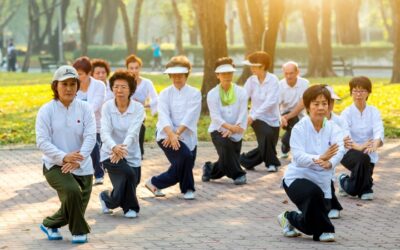Health Benefits of Daily Sunlight
There are two sides to every coin—and two stories to tell about sunlight.
Skincare enthusiasts and specialists, it seems, have taken a definitive stand against the sun, branding it as a villain that causes premature aging and leads to skin cancer.
But what most people don’t know is that it can be problematic only in substantial doses.
If you get it in the right amounts early in the day, it can do wonders for your body.
Why You Should Soak In The Sun: 10 Glorious Reasons
We’re highlighting seven of the most profound benefits of sunlight to give you the push you need to get outside for a safe and healthy body and mind.
1. Aids Weight Management
People who get light exposure are likely to have a lower body mass index.
This could be due to two reasons:
- You’re getting enough sleep, which can decrease your risk of obesity, or
- Sunlight is shrinking your fat cells, as found in a 2018 study in scientific reports.
Keep in mind that these sunlight benefits apply to light received during the daytime, between 8:00 a.m. and 12:00 p.m., for it to make a notable difference.
2. Boosts Mood
Low levels of serotonin play a causal role in depression, just like low levels of vitamin D.
Exposure to sunlight might reverse that by increasing the production of vitamin D and stimulating the production of serotonin. This neurotransmitter sends messages between brain nerve cells to regulate mood.
Serotonin plays a crucial role year-round, but its importance cannot be stressed enough in the fall and winter when sunlight is scarce. That’s why selective serotonin reuptake inhibitors (SSRIs) are used to treat Seasonal Affective Disorder (SAD), so getting some sun could be all you need to keep depression at bay.
3. Extends Life Expectancy
A 2014 study found that the risk of all-cause death in people who avoided sun exposure was twofold higher than that of those who spent quality time in the sun.
This could be because sunlight boosts vitamin D and serotonin levels and enhances the function of our immune system, which can lower our risk of disease.
4. Lowers Blood Pressure
Hypertension can cause heart disease and stroke. Unfortunately, treatment for this is often limited to avoiding risk factors, including insufficient sunlight.
You can tackle this by spending more time in the sun. The UV rays will lower your systolic blood pressure by increasing the production of nitric oxide, a molecule that does the work of a vasodilator by widening (dilating) arteries.
5. Lowers Cortisol Levels
Bright light could decrease the levels of cortisol. This does more than regulate your body’s stress response; it also counterbalances your insulin to help maintain blood sugar and suppress your appetite and cravings to prevent weight gain.
It’s a jack of all trades AND a master of them all.
6. Prevents Certain Cancers
Excessive sunlight has been linked to skin cancer, but in moderation, it could result in a 30-50% reduced risk of developing certain cancers, including:
- Breast cancer
- Colon cancer
- Prostate cancer
Sunlight could also give you better fighting chances against pancreatic cancer, Hodgkin’s lymphoma, and ovarian cancer. However, these benefits of the sun are restricted to specific sections of the population and require more research to solidify the claims.
7. Regulates The Immune System
Sunlight allows our body to make vitamin D from the 7-dehydrocholesterol in the skin. It also activates key immune cells like T-cells by making them move faster. This helps regulate the body’s immune system, which is associated with protecting your body against infections from invaders.
8. Strengthens Bones
Not getting enough vitamin D can do a number on your bones, making them soft, weak, and it could even contribute to bone-wasting diseases like osteoporosis.
That’s why you need to spend some quality time in the sun.
Sensible sun exposure can cause your body to create the vitamin D it needs to thrive. And since vitamin D can help maintain calcium homeostasis, soaking in the sun might be all you need to maintain strong bones and prevent bone fractures.
9. Supports Better Sleep
Melatonin is a hormone that helps you fall asleep. It is released in the evening, as darkness sets in, but it works in conjunction with circadian rhythms to prepare your body for catching some quality forty winks.
Seeing bright light in the morning signals your body to stop producing melatonin. This could help reset your body’s circadian clock and help you sleep better at night.
10. Treat Skin Conditions
Small amounts of UV radiation can suppress the clinical symptoms of skin conditions like atopic dermatitis, localized scleroderma, psoriasis, and vitiligo. It may also improve eczema. However, the benefit of the sun tends to vary on a case-by-case basis. So, it would be a good idea to consult a dermatologist for the most appropriate treatment course.
How Much Sun Is Too Much Sun?
So how much sun should you get a day?
Well, we don’t have a one-size-fits-all answer.
The color of your skin, age, diet, medical history, and the climate of your region are all factors to consider. This due diligence will ensure you reap the benefits of sun exposure without the problems that come with persistent light.
Typically, 10-15 minutes should do the trick for light-skinned folks, as they tend to get sunburned quickly. However, those with darker skin may have to stay a bit longer—25-40 minutes, to reap its benefits because they have higher levels of melanin content in their skin, which provides superior protection against UV radiation.
In Conclusion
So, is sun good for you?
The answer is a resounding yes—provided you get it in the right amounts.
Sun bath benefits for the body and mind abound, and they are best availed of in the wee hours of the morning. However, as you get ready for a stroll in the neighborhood, don’t forget to apply a generous coat of sunscreen with SPF 30 or higher; it will protect your skin from sunburn, signs of premature aging, and skin cancer.
What You Should Know About Sensorineural Hearing Loss
Hearing loss affects millions of people around the globe. According to the World Health Organization (WHO), it is experienced by almost 20% of the entire population! There are three types of hearing loss, but more than 90% are attributed to sensorineural hearing loss....
A Beginner’s Guide to Tai Chi: Benefits & More
Tai chi, also known as shadow-boxing, is a mind-body exercise developed by the Chinese as a “soft” martial art in the 17th century. This low-impact workout involves slow, intentional movements and deep breaths to achieve a meditative state of mind. It makes you...
Understanding Food Cravings, Their Triggers, and How To Manage Them
We’ve all been beset by food cravings at some point in our lives, but most of us don’t really know where they come from or how to resist them. Since cravings are associated with higher body mass indexes, it has become more important than ever to understand the science...
Want Healthy, Glowing Skin? Try Dry Brushing
Though dry brushing is a comparatively new trend in the skincare world, it has amassed an impressive 130.5 million views on TikTok under a hashtag by the same name. Gwyneth Paltrow and Miranda Kerr are fans of the beauty ritual which speaks of its popularity. As for...
Why You Should Laugh Your Way to Health
The quote, “Laughter is the best medicine,” has more truth to it than you realize. Humor skills or habits—having a propensity to laugh, the enjoyment of humor, the ability to laugh at oneself—are some of the main signature strengths one can possess. In fact, the...
Exploring the Connection Between Sleep and Weight Loss
An estimated 50 to 70 million people in the U.S. are battling chronic insomnia and sleep disorders. These seemingly harmless conditions brought on by stress, changes in sleep schedules or lifestyles, and medications can be quite disruptive. Over time, it can lead to...
Volunteering: How Helping Others May Impact Overall Health
Volunteering is a pro-social behavior. It’s dedicating your time, attention, and resources toward helping people who are facing hardships in your community with no expectation of any reward or compensation. But there is something in it for you after all. Volunteering...
The Unseen Connection: Oral Health’s Surprising Impact on Heart Health
Did you know that the benefits of maintaining oral health go beyond your mouth? Oral health—the health of your teeth, gums, alveolar bone, etc.—plays a more significant role than you think. Sure, it keeps your gums and teeth clean and healthy. It also helps with basic...
Whispers to Wonders: Unraveling the allure of ASMR
You may have come across the term “ASMR” at least once, particularly if you’ve been on certain corners of social media. Be it TikTok, Instagram, or even YouTube, ASMR videos have been all the rage. Tapping, scratching, whispering, chewing—ASMR (autonomous sensory...
Tea-rific Health Benefits of Drinking Green Tea
Around 600,000 tonnes of green tea is consumed annually — a figure that has grown by approximately 20% in the last ten years. When you understand all the benefits of drinking green tea, its popularity isn’t surprising at all. This grassy, flowery, and earthy...











